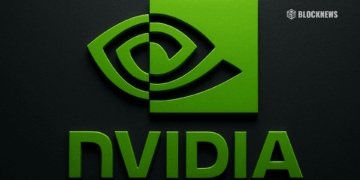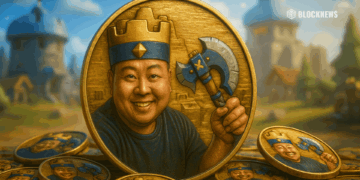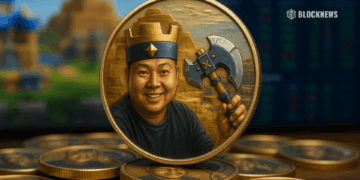Phil Spencer, the CEO of Microsoft Gaming division Xbox Game Studios, admits that he is excited about the Metaverse. However, he elaborated that he was skeptical about the core elements of play-to-earn (P2E) games because of speculative challenges and developers’ lack of vision for delivering an authentic gaming experience rather than a cash-grab form of media.
He stated that the Metaverse is technically a virtual world wherein people can communicate with each other and participate in the 3D world’s goals.
Xbox CEO shares thoughts on the Metaverse.
Xbox CEO shares thoughts on the Metaverse
On Aug. 25, Spencer told Bloomberg anchor Emily Chang that, while many gamers are not yet convinced of the current concept of a Metaverse, they have been in it for decades, albeit in virtual worlds, online lobbies, and dedicated servers.
“My view on Metaverse is that gamers have been in the Metaverse for 30 years,” the Xbox chief said in the video. “When you’re playing games, if you’re playing a World of Warcraft game, you’re playing in Roblox, you’re playing in a racing game where everybody’s in a shared world.”
Spencer’s views coincide with those of Microsoft CEO Satya Nadella, who highlighted the following after telling Bloomberg in November that consumers could “absolutely expect” the company to enter into Metaverse gaming:
“If you take Halo as a game, it is a Metaverse. Minecraft is a Metaverse, and so is Flight Sim. In some sense, they’re 2D today, and the question is, can you now take that to a fully 3D world, and we absolutely plan to do so.”
However, Spencer did elaborate on the biggest problems of the Metaverse, such as the concept of owning virtual Metaverse property through NFTs. Due to an apparent lack of utility, crypto proponent and billionaire investor Mark Cuban recently criticized virtual property investment as one of the ridiculous ways to put buyers’ money in.
Yet, Spencer said that using the Metaverse for commercial purposes got the attention of Microsoft and its CEO. Microsoft already collaborated with Enjin Coin (ENJ), a Metaverse-based project, but will look into other blockchain proposals and ideas soon.
Spencer’s Concerns about P2E Gaming
While Spencer acknowledges that mainstream commercialization for video games has been around for a while, he is concerned that P2E games are more centered around the “grindy” repetition of tasks to earn digital money rather than a genuine gaming experience.
“Play-to-earn specifically is something I’m cautious about,” he says. “It creates a workforce out of players, for certain players to kind of monetize. We made some comments in Minecraft about how we view NFTs in this space because we people are doing things that we thought were exploitative in our product — we said we don’t want that,” he added.
However, he did not entirely dismiss the idea of play-to-earn, acknowledging that Xbox Game Studios would create P2E games independently.
Gamers Still Unconvinced
Despite the success of the P2E game Axie Infinity in 2021 and high-profile celebrities entering Decentraland, the majority of the video game community does not see Metaverse gaming as “true gaming.”
For traditional gamers, play-to-earn is just a fraud that lures people in to “have fun” while “earning money.” The focus for such games would lean more toward the profit aspect rather than genuine experiences, which is why gamification would take a long time before it thoroughly convinces people that P2E gaming is worth investing their time in.
Based on recent events, here are some of the following reasons gamers despise NFTs:
- Current NFT games look lifeless compared to traditional games
- The gameplay of NFT games is dull and repetitive
- Advertisements elaborate on profit potential more than the fun experience
- Virtual social worlds already exist in online games
- Traditional microtransactions already have a bad reputation in the gaming industry
In hindsight, gamers desire rich, fulfilling experiences in video games more than money. Video games are a form of first-hand active escapism for fans, which is why the industry continues to boom. Players participate in competitive games because they want to feel that superiority when they win. Casual soloists love story-based single-player games to immerse themselves in another world.
GameFi developers will need to develop the most effective methods to ensure that gamers will be okay with implementing NFTs in future titles while providing massive revenue for the game publishers who greenlight the digital assets in the internal properties.














